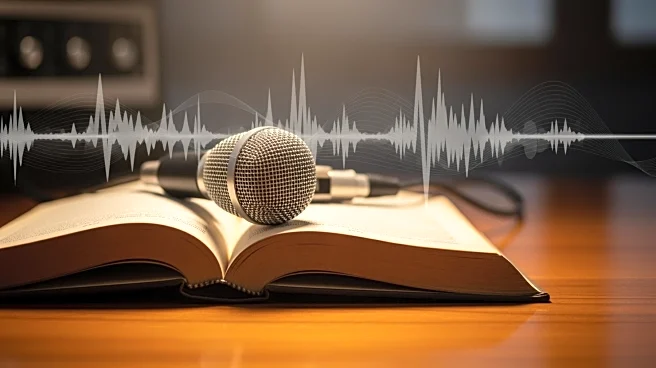What's Happening?
Historian Rutger Bregman has expressed dismay over the BBC's decision to remove a comment about President Trump from his Reith Lecture broadcast on BBC Radio 4. The BBC stated that the removal was based on legal advice, as the line allegedly gave the mistaken
impression that President Trump directly called for violent action on January 6, 2021, during the US Capitol riot. The decision to edit the lecture has led to the resignation of BBC director general Tim Davie and CEO of BBC News Deborah Turness. Bregman, known for his works 'Humankind' and 'Utopia for Realists,' criticized the BBC's self-censorship, suggesting it was driven by fear of legal repercussions from President Trump, who threatened to sue the BBC for up to $5 billion over the editing of a Panorama episode. Bregman shared his experience online, emphasizing the importance of transparency in strengthening democratic culture.
Why It's Important?
The incident highlights the tension between media organizations and political figures, particularly concerning the portrayal of sensitive events like the January 6 Capitol riot. The BBC's decision to edit the lecture underscores the challenges media outlets face in balancing editorial integrity with legal risks. This situation raises concerns about self-censorship and the influence of powerful individuals on media content. The resignations of high-level BBC executives reflect the gravity of the issue and its impact on the organization's leadership. The controversy also sparks a broader discussion on the role of media in holding public figures accountable and the potential consequences of legal threats on journalistic freedom.
What's Next?
Bregman is set to deliver three more lectures in the Reith Lecture series, which will explore themes of immorality among elites. These lectures will be broadcast on BBC Radio 4 and the BBC World Service, with availability on BBC Sounds. The BBC's handling of future broadcasts may be scrutinized for adherence to editorial guidelines and potential legal implications. The media industry may also see increased dialogue on the balance between legal advice and editorial independence, potentially influencing how sensitive topics are covered in the future.
Beyond the Headlines
The removal of Bregman's comment about President Trump from the lecture raises ethical questions about the role of media in shaping public discourse. It highlights the potential for self-censorship in response to legal threats, which could undermine the media's role as a watchdog. The incident may prompt discussions on the ethical responsibilities of media organizations to maintain transparency and resist external pressures that could compromise journalistic integrity. Additionally, it may lead to a reevaluation of editorial policies to ensure that media outlets can navigate legal challenges while preserving the integrity of their content.















